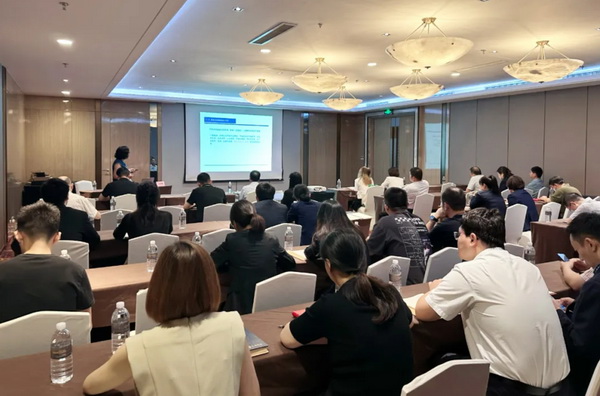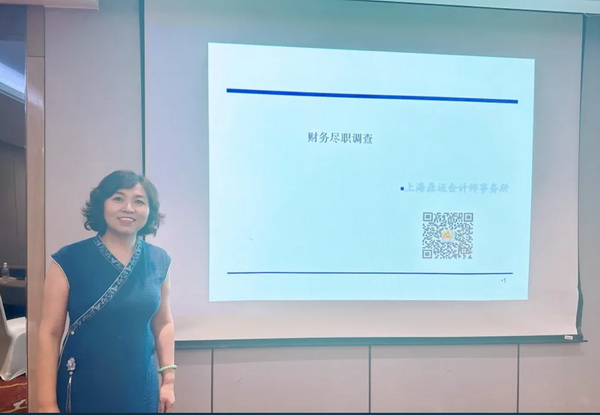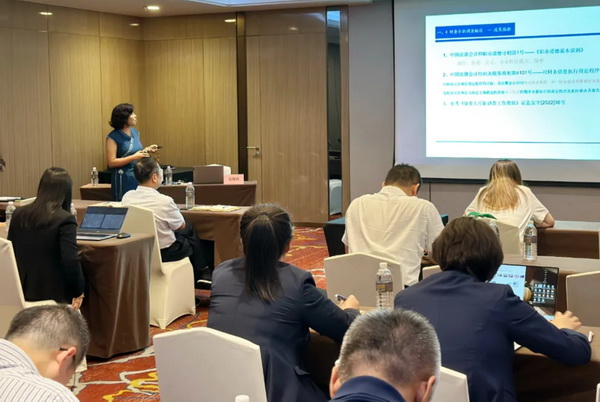In order to comprehensively improve the professional level and ability of the company's financial personnel and continuously enhance the knowledge of financial due diligence, the leaders of Shanghai Qilu Industrial (Group) Co., Ltd. specially invited Wu Weixia, the chief accountant of Dingmai, to conduct internal financial training for employees at 2:30 pm on August 23 this year in the conference room on the third floor of Qilu Building.

Wu Weixia, Chinese Certified Public Accountant, Master of Accounting, Partner of Accounting Firm, Outstanding Talent in Shanghai Certified Public Accountant Industry, Expert of Shanghai Economic and Information Commission, Science and Technology Commission. He has worked in state-owned enterprises, foreign-funded enterprises and firms for more than 20 years, and has many years of experience in senior management of corporate finance and auditing experience in accounting firms. He has completed a number of NEEQ restructuring and listing, IPO pre-counseling, financial consulting projects, and high-tech enterprise applications. Proficient in tax law and accounting standards. The combination of practical experience and theory helps enterprises reduce financial and tax risks and help development.

In this lecture, Mr. Wu shared with you the relevant content of financial due diligence:
1. Definitions
DUE DILIGENCE: GENERALLY REFERS TO THE PRUDENT AND APPROPRIATE INVESTIGATION AND ANALYSIS OF THE TRANSACTION OBJECTS AND TRANSACTION MATTERS IN TRANSACTIONS SUCH AS PUBLIC OFFERINGS, MERGERS AND ACQUISITIONS, PRIVATE EQUITY INVESTMENT, VENTURE CAPITAL, AND MAJOR ASSET RESTRUCTURING, AND THE CLIENT ENTRUSTS CERTIFIED PUBLIC ACCOUNTANTS, LAWYERS, INVESTMENT BANKS AND OTHER PROFESSIONAL INSTITUTIONS TO CONDUCT PRUDENT AND APPROPRIATE INVESTIGATION AND ANALYSIS IN ACCORDANCE WITH THEIR PROFESSIONAL STANDARDS.
2. The scope of application
financial due diligence for investment (financing) purposes; financial due diligence in mergers and acquisitions; financial due diligence on itself for the purpose of the sale; Financial due diligence for the purpose of restructuring, listing and listing; When an enterprise applies for financing credit from banks and trust institutions, banks and trust institutions generally require due diligence.
3. Types
Due diligence covers a wide range of areas, including business, finance (including tax), and legal.
Generally, it includes: industry research, market status and market prospects, business owners, historical evolution, human resources, marketing and sales, research and development, production and services, procurement, law and regulation, finance and accounting, taxation, management information systems, etc.
Financial Due Diligence Objectives:
Through due diligence in the M&A process, the target company is carefully investigated so that the client understands the various risks that may be faced.
1. Expected operational risks and financial risks
2. Estimate the cost of acquisition/merger and make a value assessment
3. Prepare for negotiations as an important basis for investment decisions
4. The direction and focus of audit and assessment can be indicated

If you want to know more about the content or courses, you can leave a message in the background of our official account, and we will reply to you as soon as we see it!